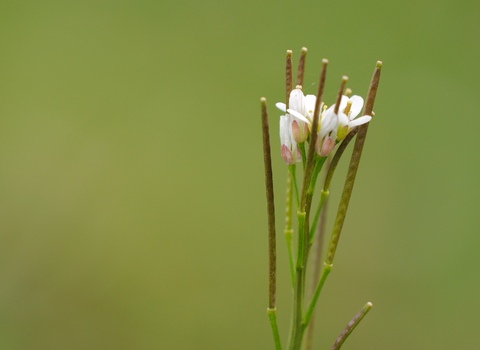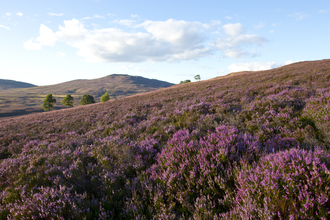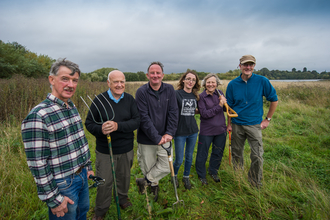
©Amy Lewis
Hairy bitter-cress
Hairy bitter-cress is an edible weed of rocky places, walls, gardens and cultivated ground. Gathering wild food can be fun, but it's best to do it with an expert - come along to a Wildlife Trust event to try it.
Scientific name
Cardamine hirsutaWhen to see
January to DecemberSpecies information
Category
Statistics
Height: up to 30cmConservation status
Common.


